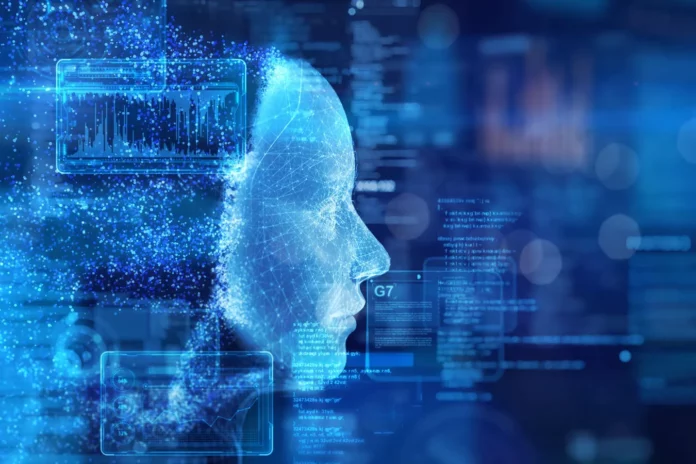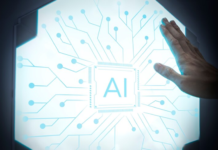AI and Machine Learning are rapidly transforming healthcare, offering immense potential to improve efficiency, quality, and scalability of healthcare services. These technologies are already enhancing patient care by predicting outcomes, providing insights beyond human capacity, and offering valuable context. The data produced by AI has the power to enable early disease detection, personalized treatments, error prevention, treatment risk analysis, and much more. Clinical AI algorithms are making significant advancements in fields like dermatology, radiology, patient monitoring, genome interpretation, and drug discovery.
AI Adoption’s Potential in Healthcare
The potential for AI adoption in healthcare is vast. In 2022, the global market for AI in healthcare was valued at USD 15.4 billion, projected to grow at a CAGR of 37.5% from 2023 to 2030. Surveys indicate that a large percentage of healthcare executives have developed AI strategies, and a substantial portion are already leveraging AI technology or considering its integration into their systems. This presents a unique opportunity for healthcare and life science organizations to harness AI for faster, safer, and more impactful outcomes.
AI and ML’s Influence on Healthcare Interoperability
In the complex realm of healthcare, the smooth flow of information is vital. It ensures that patient data moves effortlessly across various systems, enabling healthcare providers to offer well-coordinated and informed care. Artificial Intelligence (AI) and Machine Learning (ML) stand as technological marvels that have transformed this landscape, significantly impacting healthcare interoperability.
- Data Integration and Standardization: AI-driven Natural Language Processing (NLP) algorithms play a pivotal role in extracting pertinent information from unstructured clinical notes and documents. This aids in converting this unstructured data into formats that can seamlessly integrate into Electronic Health Records (EHRs) and other healthcare systems. Moreover, ML algorithms assist in standardizing medical codes, ensuring consistency and compatibility across different systems, thereby facilitating interoperability.
- Fast Healthcare Interoperability Resources (FHIR): AI and ML technologies contribute to the FHIR integration and implementation, a contemporary standard for exchanging healthcare data electronically. They facilitate the translation of data between varying formats and systems, easing the process of data exchange.
- Data Matching and Linking: AI algorithms enhance the accuracy of patient matching, reducing the occurrence of duplicate records and ensuring accurate data linkage across diverse healthcare organizations.
- Clinical Decision Support: AI and ML-powered clinical decision support systems offer real-time, evidence-based recommendations and alerts to healthcare providers. This assists in delivering more informed care in alignment with best practices and standards.
- Predictive Analytics and Risk Stratification: Leveraging AI and ML, healthcare professionals can analyze extensive datasets to identify high-risk patients requiring proactive interventions. This strategic approach aids in resource allocation, reducing hospital readmissions, and enhancing population health management.
- Remote Monitoring and Telemedicine: AI-powered remote monitoring solutions continuously gather and analyze patient data, transmitted to healthcare providers in real-time. Integrating this data with EHRs allows timely interventions, improving patient outcomes and minimizing the necessity for in-person visits.
- Interoperable Imaging and Diagnostics: AI and ML algorithms in medical imaging contribute to standardizing image formats and reports, facilitating seamless sharing across diverse healthcare systems and facilities.
- Interoperability Testing and Validation: AI automation ensures effective data exchange and communication among systems and applications by streamlining interoperability testing procedures.
- Semantic Interoperability: ML algorithms enhance semantic interoperability by comprehending the context and significance of healthcare data, accurately mapping concepts and terms between different systems.
AI and ML technologies significantly contribute to dismantling barriers in healthcare interoperability. They achieve this by enhancing data integration, standardization, and the effortless exchange of information across multifaceted healthcare systems and platforms.
Conclusion
AI and Machine Learning complement healthcare professionals, ushering in an era focused on enhancing patient outcomes. Their role in accurate patient matching, advanced decision support, and streamlined data extraction advances healthcare interoperability, aligning with the vision of a cohesive healthcare future. Concurrently, Healthcare Technology companies facilitate AI and ML adoption by integrating customized solutions, ensuring data security, and empowering professionals through training, innovation, and regulatory compliance. Together, they pave the way for transformative healthcare advancements.















